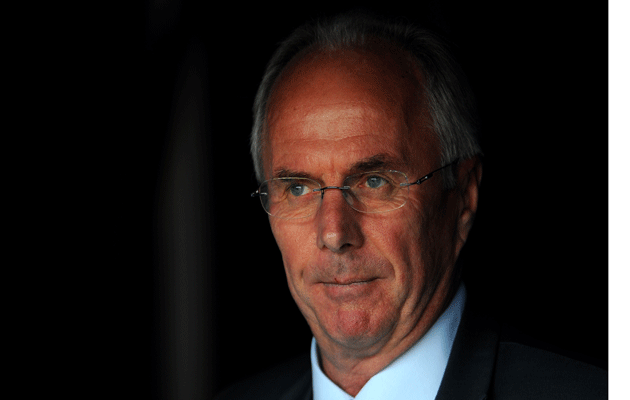You became Shanghai SIPG’s coach in November last year. How are things going?
It is good. We were level with Beijing Guoan at the top of the table after five games, so no complaints there. We had four players, including our two best foreigners missing against Beijing, who had not lost for 21 games, so we were happy to get a [1-1] draw against them.
And on a personal level, how are you enjoying life in China?
Football is growing in China, getting more and more popular, and the quality has been getting better in the past few years. I am happy here.
Why is football now booming in China?
There are two reasons: the bigger clubs have invested a lot of money and the president of China is fully behind football. He said that he wants China to take part in the next World Cup, to host a World Cup and eventually to win the World Cup. That is very ambitious, but it is realistic to talk about China competing at the highest level in the next 10 to 15 years.
What are your biggest challenges as a coach in the country?
Well, you need to find four overseas players who can make a difference, and one of them must be Asian. Then you need to find good Chinese players, which is not easy. There is no history of grass-roots football in China – children play ping-pong or badminton, but they don’t play football in schools from the age of six or seven as we do in Europe. They tend to start playing at 12 or 13 so they have missed out on very important formative years. But the situation is getting better and better now that the Chinese government is pushing football, both in schools and in the professional game. Some of the clubs have wealthy owners, or government support, or a bit of both. We at Shanghai are owned by the port authority.
How do Chinese players compare with their European counterparts?
They are getting closer. Some of them could play in Europe – maybe not the Premier League, Bundesliga or La Liga, but certainly in the second divisions in those countries and the top divisions in other countries. I have found Chinese players have a fantastic work ethic and are very easy to motivate. They could not be better in that department. Technically they are often as good as European players, but physically and tactically they are not quite as good. Europeans are ahead because most of the time they have started playing at a younger age. But that may start to change now.
How do you find working with Chinese players? Have you learnt the language?
I have been studying a little but it is a difficult language to learn, so everything is done through translators – and not just for the Chinese players. We also have Spanish speakers so we have translators for them, but I have a good interpreter and the system works well.
In your previous job in China, you took Guangzhou R&F into the Asian Champions League. How does it compare with the UEFA Champions League?
In some ways it is similar; it is prestigious and a chance to play against the top clubs from other countries, but in other ways it is very different. There is nothing like the money that the Champions League in Europe can generate, nor the worldwide coverage. But it is a competition that the top clubs in China all want to be involved in.
Manchester City are one of your former clubs. What do you make of their situation: out of the Champions League in the early stages and hanging on for a top-four place in the Premier League?
With the squad they have, Manchester City should do better. I think they have the best players in the Premier League, so they should be the best team, but they are not. They are out of the Champions League again and will not win the Premier League this year. I don’t know what is going wrong because they won the league last year with the same players. It is hard to know what has made the difference this year but with the money they have spent they have to do better.
Do you sympathise with City manager Manuel Pellegrini, who may be out of a job a year after winning the Premier League?
This is football today. I suppose it is not good enough. For rich clubs, whose owners invest a huge amount of money, they expect to win every year, but only one team can win the title.
Yet City were not always competing for the biggest prizes, were they?
No, the year before I was there they were almost relegated. Now they have success and the fans should be happy. But expectations are high, and it is the same at Chelsea. They want their team to win all the time.
Do you still have ambitions to return to management in England?
I was there for many years, but now I am in China and happy here. I have a two-year contract with an option for another year, so I see my future here.
Interview by Gerry Cox







